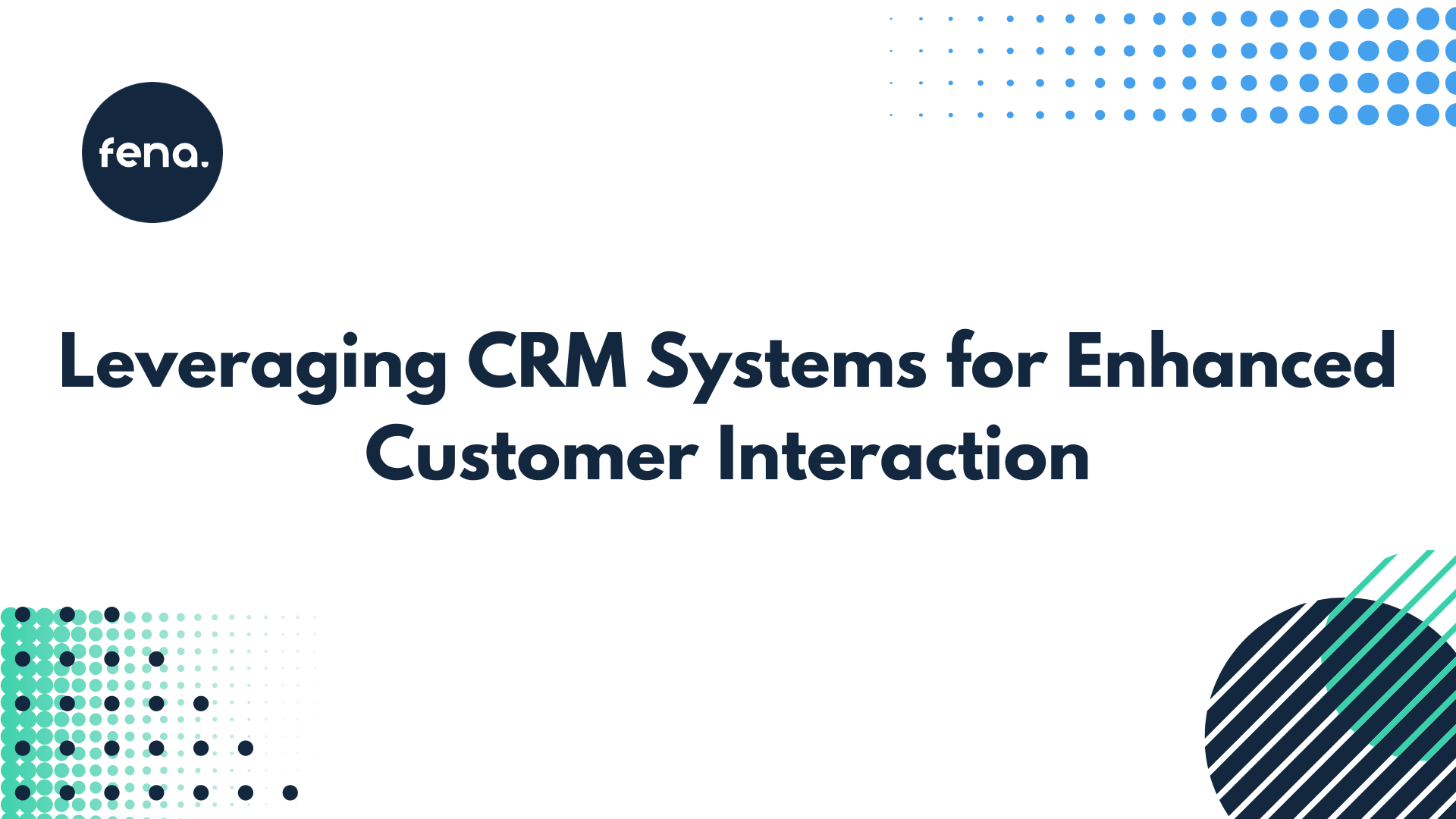Leveraging CRM Systems for Enhanced Customer Interaction
by Gosia Furmanik on October 30, 2023

In today's fast-paced ecommerce landscape, one of the challenges that small and medium businesses (SMBs) face is managing customer interactions efficiently. With the increasing demand for personalised experiences, the importance of building and nurturing relationships with customers cannot be overstated. Enter Customer Relationship Management (CRM) systems. These software solutions have transformed the way businesses interact with their clientele, ensuring that every touchpoint is meaningful.
For ecommerce SMBs, especially those using tools like the Fena Toolkit to streamline various aspects of their operations, integrating a robust CRM system can provide a competitive edge. In this article, we'll delve into how CRM systems can enhance customer interaction for ecommerce businesses.
1. Unified Customer Data
As ecommerce businesses grow, they tend to diversify sales channels. This means you might be selling on your own website, on Amazon, on Etsy, and maybe even on social media platforms. Keeping track of customer interactions across all these channels can be daunting.
With a CRM system, all customer interactions, whether it's an email inquiry from your website or a comment on a social media post, can be centralised. This gives a holistic view of the customer's journey, making it easier for businesses to tailor their interactions.
2. Personalised Interactions
In the age of automation, personalization stands out. CRM systems store data on every customer's preferences, purchase history, and interactions. This means that when a customer reaches out or logs in to make a purchase, the system can recommend products based on their past interactions or even send personalised marketing messages.
Imagine a customer who purchased hiking shoes from your online store. Your CRM could segment such customers and send them an email about a new collection of hiking gear or perhaps a discount on camping equipment.
3. Efficient Issue Resolution
Quick and efficient problem-solving is a hallmark of excellent customer service. CRM systems allow for the tracking of customer complaints or inquiries. If a customer had a past issue, the history is right there, ensuring that they don't have to explain themselves multiple times.
With tools like Fena Toolkit streamlining inventory and order processing, integrating this data with your CRM can help in quickly resolving issues related to orders, shipments, or product availability.
4. Consistent Communication Across Teams
When multiple teams – from sales to customer support to marketing – interact with customers, it's vital to maintain consistent communication. A CRM system ensures that all teams have access to the same customer data. This way, if a sales representative promised a particular offer to a customer, the customer support team would be in the loop, ensuring that the customer has a seamless experience.
5. Insightful Analytics
One of the most potent aspects of CRM systems is their ability to analyse data. Through a CRM's analytics dashboard, businesses can gain insights into customer behaviour, purchase patterns, and even predict future trends. These insights are invaluable for refining marketing strategies and enhancing customer interactions.
For instance, if the CRM analytics show a high cart abandonment rate at the shipping cost stage, a business might consider tweaking its shipping policy or offering periodic free shipping promotions.
6. Automated Follow-Ups
One of the challenges in the ecommerce space is to keep the customer engaged post-purchase. CRM systems can automate follow-ups, whether it's a 'thank you' email after a purchase, a request for a product review, or a reminder about a cart that's been left abandoned.
7. Enhanced Customer Segmentation
Not all customers are the same, and treating them as such is a missed opportunity. With a CRM system, businesses can segment their customers based on various criteria – from demographic data to purchase history. This segmentation allows for more targeted marketing campaigns and, in turn, enhanced interactions. For instance, a segment of customers who frequently buy children's products might appreciate a promotion around the back-to-school season.
Conclusion
For SMBs in the ecommerce realm, the journey from attracting a visitor to converting them into a loyal customer involves numerous touchpoints. Each interaction holds the potential to enhance or diminish the relationship. By leveraging CRM systems, businesses can ensure that every touchpoint is meaningful, personalised, and efficient.
Coupled with tools like the Fena Toolkit, which optimises backend processes, CRM systems can help ecommerce SMBs deliver an unparalleled customer experience, turning one-time buyers into lifelong advocates.